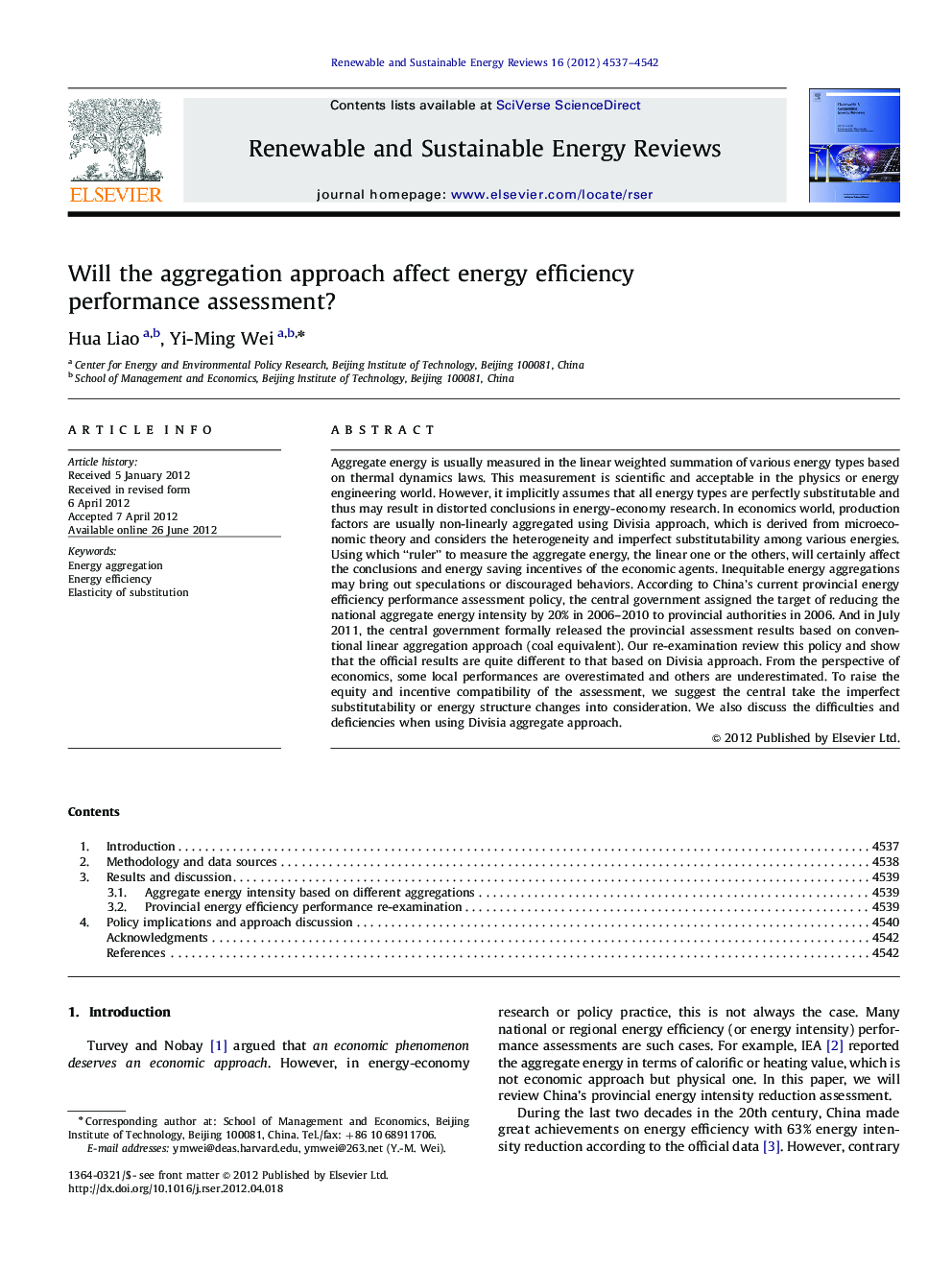| کد مقاله | کد نشریه | سال انتشار | مقاله انگلیسی | نسخه تمام متن |
|---|---|---|---|---|
| 1750896 | 1018406 | 2012 | 6 صفحه PDF | دانلود رایگان |

Aggregate energy is usually measured in the linear weighted summation of various energy types based on thermal dynamics laws. This measurement is scientific and acceptable in the physics or energy engineering world. However, it implicitly assumes that all energy types are perfectly substitutable and thus may result in distorted conclusions in energy-economy research. In economics world, production factors are usually non-linearly aggregated using Divisia approach, which is derived from microeconomic theory and considers the heterogeneity and imperfect substitutability among various energies. Using which “ruler” to measure the aggregate energy, the linear one or the others, will certainly affect the conclusions and energy saving incentives of the economic agents. Inequitable energy aggregations may bring out speculations or discouraged behaviors. According to China's current provincial energy efficiency performance assessment policy, the central government assigned the target of reducing the national aggregate energy intensity by 20% in 2006–2010 to provincial authorities in 2006. And in July 2011, the central government formally released the provincial assessment results based on conventional linear aggregation approach (coal equivalent). Our re-examination review this policy and show that the official results are quite different to that based on Divisia approach. From the perspective of economics, some local performances are overestimated and others are underestimated. To raise the equity and incentive compatibility of the assessment, we suggest the central take the imperfect substitutability or energy structure changes into consideration. We also discuss the difficulties and deficiencies when using Divisia aggregate approach.
Journal: Renewable and Sustainable Energy Reviews - Volume 16, Issue 7, September 2012, Pages 4537–4542